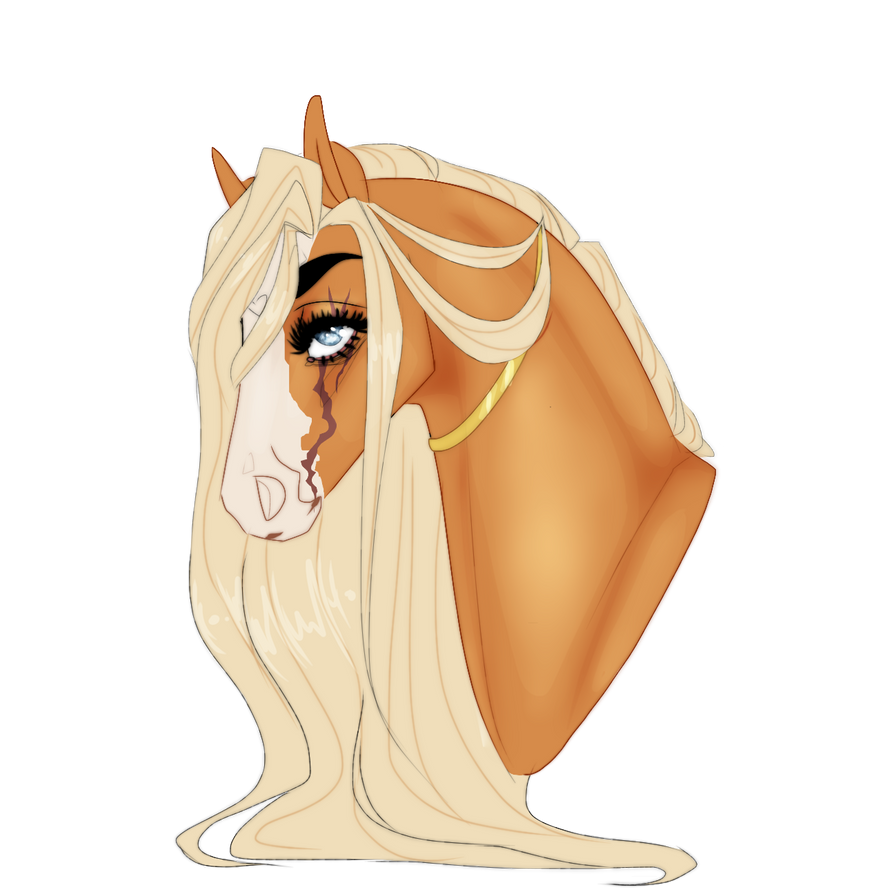“DEATH ITSELF IS NOT THE WORST THING.
worse still is to live when you want to die."

Perhaps Bexley is less disturbed than she should be by these herself-reflections. They do nip at her heels; their faces crowd the edges of her vision, peering out at her from shards of mirror in the same way a sunflower cranes toward the light.
But she is not… afraid. Not disturbed, not even when these versions of her start coughing up dark blood, or split their own faces in half by pulling, in a manic frenzy, at the pale-gray seams. (Underneath, they are not muscle or bone but pure yellow light; when their lips split, gold spills out, and splashes onto the silver ground with an almost-acid hiss.) Still—she is not afraid. And perhaps it is because Bexley knows how little of the world is guaranteed to be real, and she knows this because she has done her fair share of making illusions.
For the first moment Bexley sees Seraphina, that is her thought. This must be an illusion. Solis is once again playing tricks on her, or Bexley’s own brain has suffered so much that it cannot not make things up. Her imagination and her magic must be acting as a shield, subconsciously trying to protect Bexley from the knowledge that without Seraphina—without her and Acton, without Eik, without Solterra as their home—there is simply nothing left to love.
For that first moment, Bexley thinks dryly that her magic must have grown more powerful in sleep: she’s really outdone herself this time. Seraphina is perfect. She looks solid and lively. The gray of her skin is just as it should be, and the scars on her cheek catch light like real metal; even her eyes stare back at Bexley with an elan that is unusual for phantoms, brighter and deeper than most of these mirror-girls’ gazes.
But then her mouth opens.
Seraphina speaks. Her illusions—they can't do that.
And Bexley slams through all of the stages of grief, shock and realization instantaneously.
Her body flashes sun-hot, then ice-cold; her lips part slightly. She’s rocked, enough that she almost physically stumbles, by the sharpness of the breath she inhales—by the sheer, mind-numbing surprise that crashes through her—but the feeling that follows that is unadulterated relief.
A relief so strong it sets her teeth on edge. A relief better than a bar-night buzz, a relief that—despite the creeping sense of being watched by this forest of mirrors, and the knot that still rests in her stomach—manages to break Bexley’s face into a wide, catty smile. For a moment, the feeling is so strong it becomes dizzying, and Bexley feels as though she is falling: the world opens up on all sides, like the unfolding of a flower, and she is plunging out of the hungry stomach-pit of this terrible world and into its enchanting, paradisaical counterpart.
I thought you were dead.
Bexley laughs.
It must be the first time she's laughed in months, and the sound of it is... not quite right. It is not an easy thing, either. It rips out of her hoarsely, pretty, in a terrible way; a song beaten badly out of shape. Windchimes that haven't quite been allowed to click.
When she hears it, her mouth snaps shut abruptly. It's hard to tell whether the sudden stop is out of embarrassment or simple shock, that she is capable of making a noise like that—but it is only a moment later that she huffs: "Yeah, well. So did I."
Silence, then. The forest of mirrors seems almost to tremble around them. In its many silver surfaces, Bexley realizes that their reflections are starting to interact. In one, they stand side by side in front of the walls of the city; the spot where Eik should be is filled only by a darkness in the shape of him. In another, they fight viciously on the steppe, a metallic blur of movement, cut up in places by the flash of hooves or teeth. And in yet another—and this is the one that makes Bexley's stomach drop, her teeth itch—they are not themselves at all but two headstones, unmarked, in an overfull Solterran graveyard.
She looks away. Clears her throat.
"And you," she says, suddenly. Her eyes flash to Seraphina's; for a moment they grow dark, almost-but-not-quite angry. "You were supposed to be dead, too. You've been gone. Uh. A long time."
She does not say the rest of it: long enough for me to miss. Badly. Like a phantom limb.
Long enough for me to worry about.
Long enough that I want to say I love you.
Bexley says none of it, and ducks her head, so the sudden wet shine in her eyes won't catch the light of the mirrors.

